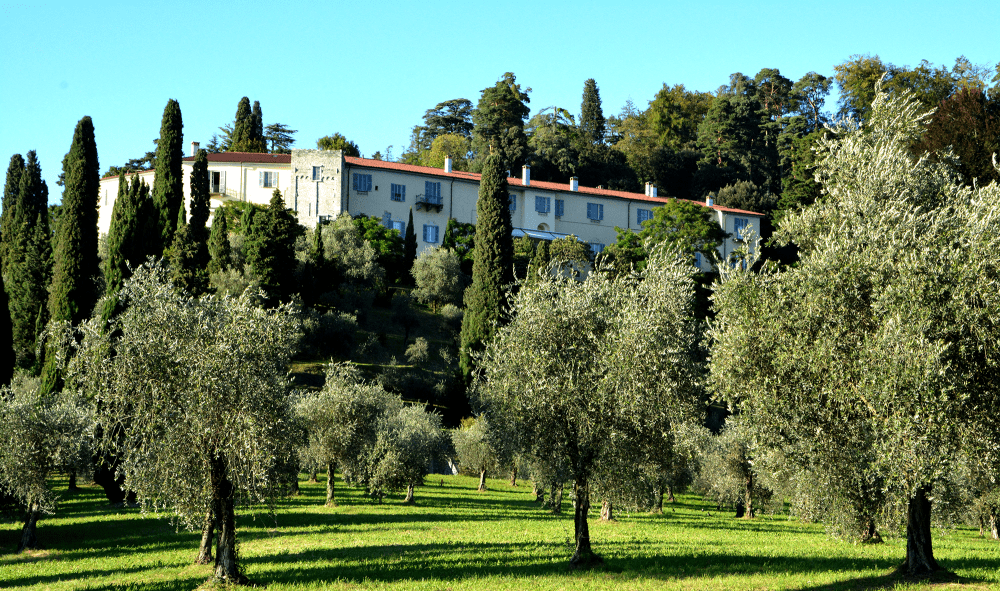David A. Sklansky is Stanley Morrison Professor of Law at Stanford Law School and faculty codirector of the Stanford Criminal Justice Center. A former assistant U.S. attorney in Los Angeles, he is the author of “A Pattern of Violence: How the Law Classifies Crimes and What It Means for Justice.”
A few words from David:
 “Conversations with my fellow residents and the feedback they gave me on the book were crucial in helping me clarify my ideas. Then there was a trip that my wife and I took up the lake with two of our fellow residents — David and Louanne Hempton — to the Fine della Guerra museum in Dongo. The exhibits served as a vivid reminder of the dangers of authoritarianism and the importance of strengthening democratic pluralism.”
“Conversations with my fellow residents and the feedback they gave me on the book were crucial in helping me clarify my ideas. Then there was a trip that my wife and I took up the lake with two of our fellow residents — David and Louanne Hempton — to the Fine della Guerra museum in Dongo. The exhibits served as a vivid reminder of the dangers of authoritarianism and the importance of strengthening democratic pluralism.”
Quote from Criminal Justice in Divided America:
“The crisis of American criminal justice and the crisis of American democracy are usually discussed separately, but they are deeply linked. The plummeting confidence in the police is partly a reflection of a broader loss of faith in American institutions more generally, a loss of faith that extends to Congress, administrative agencies, big business, and the news media. But the connections go further than that. It’s hard to think of any area of domestic policy where American democracy has failed more spectacularly over the past several decades, or with worse consequences, than in criminal justice. When the Great Society collapsed in 1968 and the nation began its long journey toward rightwing populism, no issue fueled conservative discontent more than the failure of government to provide “law and order.” Throughout the closing decades of the twentieth century, Democrats competed with Republicans to propose the harshest anti-crime policies, and the eventual results were the disasters of mass incarceration and hyper-militarized policing. Those developments, in turn, led in the summer of 2020 — during a pandemic, no less — to the most widespread protests and civil disturbances the country had seen in decades. They led, as well, to the wholesale discrediting of what had been an extraordinarily promising program of police reform, the community policing movement. Bridges that had taken a quarter-century to build between police departments and minority neighborhoods suddenly collapsed. Levels of trust between law enforcement and one half of the country are lower now than they have been for decades. Meanwhile the other half of the American public is bewildered and angered — and feels personally under threat — by calls to defund or abolish the police. The failures of American criminal justice played a major role in precipitating the current crisis in American democracy, by fueling rightwing populism and widening political polarization. By the same token, this book will argue, reforming policing, prosecution, and punishment in the United States can help repair our democracy.”
Synopsis:
How a broken criminal justice system has fueled the crisis of American democracy, and how we can address both problems together.
American criminal justice is in crisis. Prisons are swollen, confidence in police has plummeted, and race- and class-based biases distort every aspect of the system. American democracy is in crisis, too, as the chasm of loathing and incomprehension that divides political factions grows ever wider and deeper. Legal scholar and former prosecutor David A. Sklansky argues that these crises are deeply intertwined. And if the failures of American criminal justice are near the heart of our political divides, then reforming the system is essential for repairing our democracy.
Related

January 2025
The January 2025 Bellagio Bulletin highlights stories from Warren Evans, Alice Hill, Karen Florini, Atsango Chesoni, Amitava Kumar, Vibha Galhotra and Elise Bernhardt, all engaged in work that deepens our relationships with the planet, society and one another.
More